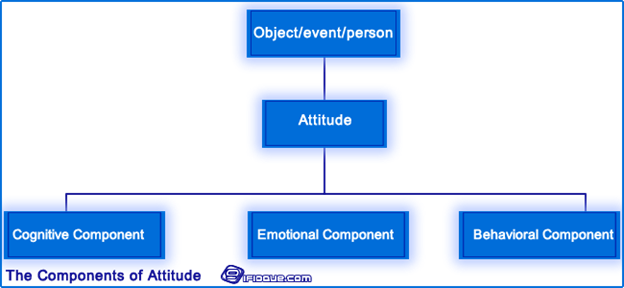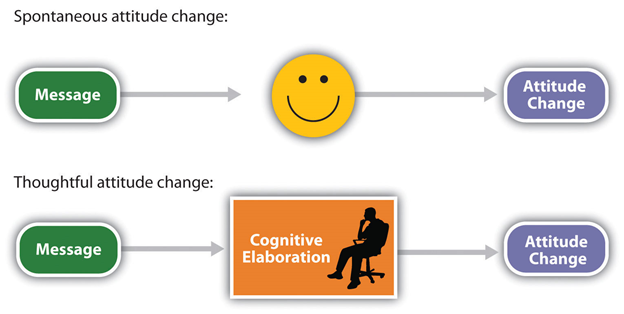Excerpt: Because “attitude is everything,” I thought it was worthwhile and important to explore attitude in a three-part series. This is the second blog in the series that delves into whether attitude is within our control, how difficult it is to employ the control that is ours, as well as present an effective approach to managing attitude. (Read the first part here)
Believe It – We Are in Control of Our Attitude
The TIPP Poll survey revealed, in general, most adults believe attitude is within their control. Those between 18 to 24 years old are the least convinced of this. Those most confident that they can control their attitude are between 25 and 44 years of age and those over 65.
An interesting correlation worth noting is that the higher one’s income, the more they believe they are in control of their attitude. Of those making $75K or more per year, 87% think they control their attitude, compared to 75% of those making up to $50K per year. So, it looks like most of those sales managers are right when they tell their sales reps, “Your attitude determines your altitude.”

How Difficult Is It To Control Our Attitude?
Believing you can control your attitude is the first step toward actually controlling it. But, accepting that control and being effective is another important step if one wishes to change it.
Insights for Controlling Our Attitude
Before offering simple and easy-to-do steps for controlling your attitude, it might be helpful to first understand what attitude is. Attitudes tend to be more on the surface of our conscious awareness. Attitudes are general evaluations that reflect the way we think and feel about things. Feelings are a vital component to shaping an attitude (likes and dislikes, good and bad). Because feelings can fluctuate and change quickly, most experts agree that to control your attitude, it’s important to pay attention to your thinking. As Earl Nightingale, an American radio speaker and noted author, said, “We become what we think about.” The Oxford Dictionary and Thesaurus states that attitude is “a settled opinion or way of thinking”.

How To Take Ownership Of Your Thoughts
Here’s a great way to explain how best to take ownership of your thoughts. Let’s use an off-the-job example that’s easy to relate to, even if golf may not be your chosen sport.
Let’s say you’re a fairly good golfer who’s in an energizing conversation with a few highly enthusiastic colleagues. Their enthusiasm rubs off on you as they start talking about participating in an upcoming fund-raising golf event. Without giving it much thought, you impulsively throw in your hat to play in the tournament. The conversation ends, your buddies leave, and you find yourself alone.
As you reflect on what you’ve just committed to doing, your mind is suddenly flooded with a surge of anxiety brought on by negative thoughts: What did I do? I’m going to embarrass myself! How could I have agreed to do this? I’m not a good golfer! These people are counting on me and I can’t back out! I don’t want to let them down!
And on and on. The panicky feeling overwhelms you as you think about the pending disaster. It becomes pretty obvious that within a short time, you’ve gone from enthusiasm for playing in the event to dread and a negative attitude toward even participating in the event.
Do the following to take control of your attitude:
1. Listen to yourself.
Listen to what you’re saying to yourself by imagining that you’re recording everything you’re saying, whether out loud or to yourself.
2. Examine what you are saying.
Next, examine if what’s being said is accurate? If not, then edit where necessary. Make sure you’re giving yourself good information. If it’s accurate, you need to take the necessary action to address what you’re saying.
But first:
3. Stop the negative thinking.
Stop the anxiety from gaining any further momentum by using the Fenstersheib Stop Technique, which is practiced by simply telling yourself to “STOP.”Repeatedly start telling yourself to “Stop” the negative thinking every time those negative thoughts return. Allowing those negative thoughts to get absorbed into your consciousness will further cause you to expect to face obstacles that are bound to result in debilitating outcomes. In this negative state, there’s even a tendency to overlook your past experiences, achievements, and even your skill or expertise.
4. Make a decision.
Once you make up your mind, be sure to operate with no regrets!
If you decide to back out of the event, watch your negative thoughts vanish, and your accompanying negative attitude dissolve instantly.
If you elect to play in the tournament, then:
5. Take steps to prepare for the event by practicing.
Go to a practice range, or take a lesson, or do whatever you think you need to do to give yourself the best chance to play your best, given your time limitations. Doing nothing and expecting a great outcome is wishful thinking.
But you shouldn’t stop there; unfortunately, that’s what many people do!
6. Prepare mentally by taking a realistic view.
Telling yourself that playing in this fundraiser is going to be a disaster is inaccurate. The event hasn’t happened yet! You’re projecting negatively into the future. Instead, remind yourself that you have a 50/50 chance of doing well or doing poorly. At this stage, it only makes sense to go with the positive! You have everything to gain and nothing to lose by adopting this way of thinking. Make sure you focus on what you need to do and zero in on only that thought or action. Remember, you can only control the present…not the future.

This approach introduces some logic and can be helpful to those who are skeptical of being told to simply substitute negative thoughts with positive ones! A word of caution: don’t get discouraged if the negative thoughts return. Chances are, they will. Make a point of repeating this process: tell yourself to “stop” the negativity and focus on what you want to achieve.
Remember, you’re not alone.
The same process applies to preparing for a presentation, an important client meeting or giving bad news to a friend. Stick to these steps, and you'll be amazed at how much better you'll be able to control your attitude in any situation and at any time.
Deb
It’s time to surround yourself with Pro-Achievers by getting your team members to each buy a copy --
THE PRO-ACHIEVEMENT PRINCIPLE now:

$1.00 for each book bought goes to the Tunnel to Towers Foundation.










